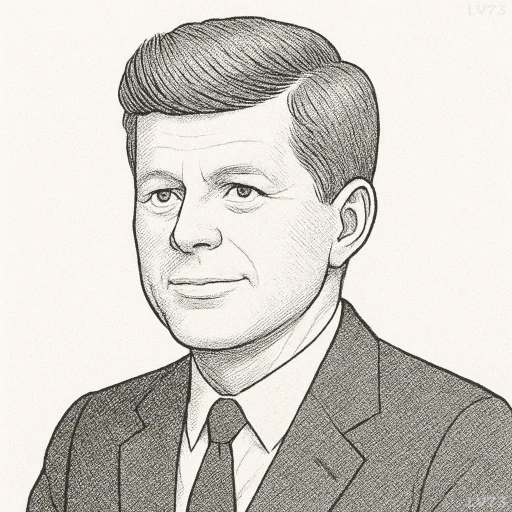“We are not afraid to entrust the American people with unpleasant facts, foreign ideas, alien philosophies, and competitive values. For a nation that is afraid to let its people judge the truth and falsehood in an open market is a nation that is afraid of its people.”

- May 29, 1917 – November 22, 1963
- American
- Politician
table of contents
Quote
“We are not afraid to entrust the American people with unpleasant facts, foreign ideas, alien philosophies, and competitive values. For a nation that is afraid to let its people judge the truth and falsehood in an open market is a nation that is afraid of its people.”
Explanation
In this statement, John F. Kennedy champions the principle of freedom of information and public discourse as essential to a functioning democracy. He argues that a healthy society should be willing to expose its citizens to a wide range of ideas, even if those ideas are difficult or foreign. Rather than shielding the people from “unpleasant facts” or “alien philosophies,” the government should allow them to engage with and evaluate ideas for themselves. Kennedy’s message underscores the belief that truth and falsehood are best judged in an open market of ideas, where people are free to consider diverse viewpoints, challenge assumptions, and make informed decisions.
Kennedy’s words were particularly poignant during the Cold War, a time when the U.S. government was deeply concerned with the spread of communism and other ideologies perceived as threats to democracy. While the government sought to combat the influence of totalitarian regimes, Kennedy believed that the strength of American democracy lay in the ability of the people to think critically and independently, even about the most contentious issues. The openness to diverse ideas was seen as a sign of confidence in the public’s judgment, as opposed to the fear-driven censorship or suppression found in more authoritarian states.
In today’s context, Kennedy’s message remains as relevant as ever in the face of information warfare, censorship, and political polarization. The rise of social media and misinformation poses new challenges to open dialogue, but Kennedy’s call for a robust, transparent public sphere stands as a reminder that trusting the people to engage with a full range of ideas is a cornerstone of democratic health. A nation that fears its people’s capacity for judgment—whether in politics, the media, or education—undermines the very foundation of democracy. Kennedy’s statement affirms that freedom of thought and the right to access diverse information are not just rights to be protected, but vital to the strength and resilience of any democratic society.
Would you like to share your impressions or related stories about this quote in the comments section?


